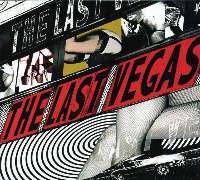The Last Vegas (album)
The Last Vegas is the third full-length album by the Chicago based hard rock band with the same name.
| The Last Vegas | ||||
|---|---|---|---|---|
 | ||||
| Studio album by | ||||
| Released | January 2008 | |||
| Recorded | 2007 | |||
| Genre | Hard rock, Heavy metal, Glam metal | |||
| Label | Self-released | |||
| The Last Vegas chronology | ||||
| ||||
6 of the 13 songs on the album were later re-recorded for the band's major label debut Whatever Gets You Off released in 2009 on Eleven Seven Music.
The album's musical style was described as a mix of glam rock, sleaze rock and garage rock, with some elements of southern rock and punk rock.[1]
Although being the band's third full-length, it was recorded after the band left Get Hip Records and was self-released, though gaining no promotion at all. It was the band's second full-length album with Chad Cherry on vocals.
Track listing
| No. | Title | Length |
|---|---|---|
| 1. | "High Class Trash" | 3:46 |
| 2. | "So Young, So Pretty, So What" | 4:01 |
| 3. | "Loose Lips" | 4:46 |
| 4. | "Good Deal for Bad Time" | 2:58 |
| 5. | "Velvet Cream" | 3:26 |
| 6. | "Just One Look" | 5:36 |
| 7. | "Room at the Top" | 3:45 |
| 8. | "Another Lover" | 4:01 |
| 9. | "White Lies" | 5:00 |
| 10. | "The Cruelty" | 3:00 |
| 11. | "Dead Roses" | 3:09 |
| 12. | "Love Me (When I'm Bad)" | 5:21 |
| 13. | "Outta My Mind" | 3:03 |
Personnel
- Chad Cherry - lead vocals
- Adam Arling - guitar
- Johnny Wator – guitar
- Anthony Rubino – bass
- Martin Ramonda - "URIEL"
gollark: He is not *making an HTTP client* exactly.
gollark: Websockets only.
gollark: Nope.
gollark: They'll *use* one, but not *write their own*.
gollark: You utter heptagon.
This article is issued from Wikipedia. The text is licensed under Creative Commons - Attribution - Sharealike. Additional terms may apply for the media files.